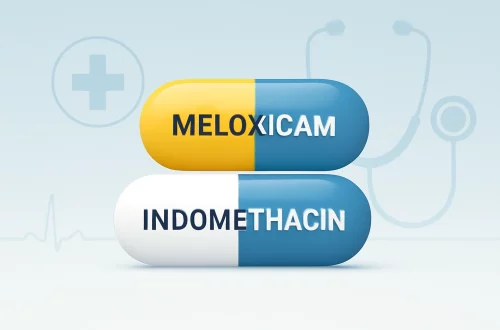
Understanding Why Your Dog’s Breath Smells Fishy and What to Do
Dogs are often referred to as man’s best friend, and for good reason. They bring joy, companionship, and love into our lives. However, just like humans, dogs can experience a variety of health issues, some of which may manifest in unexpected ways. One such concern is when a dog’s breath starts to emit a fishy odor. This peculiar smell can be alarming for pet owners and may raise questions about the underlying causes.
A dog’s breath can reveal much about its health and well-being. While occasional bad breath can be normal due to diet or dental hygiene, a consistent fishy smell is often indicative of something more serious. Factors such as dietary choices, dental issues, and underlying health conditions can all contribute to this alarming phenomenon. Understanding the reasons behind your dog’s fishy breath is crucial for ensuring their overall health and addressing any potential problems before they escalate.
In this article, we will delve into the various factors that can lead to this unpleasant scent. By becoming informed about the causes of fishy breath, dog owners can take proactive steps to maintain their furry friends’ health. Additionally, we’ll explore effective treatments and preventive measures to ensure your dog’s breath remains fresh and their health stays optimal.
Common Causes of Fishy Breath in Dogs
There are several reasons why a dog may develop fishy breath, each stemming from different health or dietary issues. One primary cause can be related to poor dental hygiene. Just like humans, dogs require regular dental care to prevent plaque buildup, gum disease, and tooth decay. When bacteria accumulate in a dog’s mouth, they can produce foul odors, sometimes resembling a fishy scent.
Another common cause of fishy breath in dogs is dietary choices. Many pet owners opt for fish-based dog foods, which can contribute to a distinct fishy smell in their pet’s breath. While these foods can provide essential nutrients, they may not be suitable for every dog, particularly those with specific dietary sensitivities or allergies.
Additionally, certain medical conditions can lead to fishy breath. For example, problems with the liver or kidneys can result in the accumulation of toxins in the body, which may manifest as unusual breath odors. Infections in the mouth or gastrointestinal issues can also produce similar symptoms. It’s essential for pet owners to recognize these signs and consult with a veterinarian if they notice a persistent fishy smell.
Understanding these common causes can help you identify potential problems early. Regular veterinary check-ups and proper dental care are essential for keeping your dog healthy and their breath fresh. By addressing the root causes promptly, you can improve your dog’s quality of life and prevent more serious health issues down the line.
The Role of Diet in Your Dog’s Oral Health
Diet plays a significant role in your dog’s overall health, including their oral hygiene. A balanced diet not only supports your dog’s physical well-being but also contributes to fresh breath. If your dog is consuming a diet high in processed foods or fish-based products, it may lead to undesirable breath odors.
One of the best ways to combat fishy breath is to choose high-quality dog food that promotes good dental health. Look for products that contain ingredients specifically designed to reduce plaque and tartar buildup. Additionally, incorporating crunchy fruits and vegetables, such as carrots or apples, can help clean your dog’s teeth naturally while providing nutritional benefits.
Moreover, regular feeding schedules can also help maintain oral health. Feeding your dog at set times rather than leaving food out all day can encourage better eating habits and minimize the chances of bacterial growth in their mouths.
It is also crucial to ensure that your dog has access to fresh water at all times. Hydration helps wash away food particles and bacteria, reducing the likelihood of bad breath. If your dog is reluctant to drink water, you might consider offering ice cubes or adding water to their dry food to encourage fluid intake.
In addition to their main diet, consider consulting with your veterinarian about dental chews or treats designed to promote oral health. These products can help reduce plaque and improve breath quality, making them a valuable addition to your dog’s routine.
Maintaining Your Dog’s Dental Hygiene
Maintaining your dog’s dental hygiene is key to preventing fishy breath and ensuring their overall health. Regular dental care routines should be established from a young age to promote healthy habits. Brushing your dog’s teeth is one of the most effective ways to maintain their oral hygiene. Use a toothbrush and toothpaste specifically designed for dogs, as human toothpaste can be harmful to pets.
Aim to brush your dog’s teeth at least two to three times a week, if not daily. This practice helps remove plaque buildup and prevents gum disease, which can lead to bad breath. If your dog is resistant to having their teeth brushed, consider introducing the process gradually. Start by allowing them to taste the toothpaste and gradually introduce the toothbrush.
In addition to brushing, regular dental check-ups with your veterinarian are crucial. Professional cleanings can help remove tartar and plaque that brushing alone may not eliminate. Your vet can also check for underlying dental issues that may contribute to bad breath.
Another effective practice is to provide your dog with dental toys and chews that promote gum health and reduce plaque buildup. These products can be a fun way for your dog to maintain oral hygiene while also serving as a treat.
Lastly, be vigilant about any changes in your dog’s mouth or breath. If you notice persistent bad breath, swollen gums, or difficulty eating, consult your veterinarian immediately. Early detection of dental issues can prevent more significant health problems in the future.
When to Consult a Veterinarian
While occasional fishy breath may not be a cause for alarm, persistent or severe cases warrant a consultation with a veterinarian. Recognizing when to seek professional help is essential for ensuring your dog’s health and well-being.
If your dog’s breath has a strong, fishy odor that does not improve with dental care, this may indicate a more serious underlying condition, such as liver or kidney disease. Other signs to watch for include excessive drooling, difficulty eating, or changes in behavior. These symptoms can signal that your dog is in discomfort and requires immediate attention.
Additionally, if you observe any changes in your dog’s eating or drinking habits, it’s crucial to consult a veterinarian. A sudden decrease in appetite or increased thirst can be indicative of health issues that need to be addressed.
Regular vet visits are vital in preventing and identifying health problems early. During these check-ups, your vet can assess your dog’s overall health, including their dental condition. They can provide valuable guidance on maintaining oral hygiene and recommend dietary changes if necessary.
In summary, while fishy breath in dogs can be concerning, understanding the potential causes and taking proactive measures can help keep your pet healthy. Regular dental care, a balanced diet, and timely veterinary consultations are essential components of maintaining your dog’s overall well-being.
**Disclaimer:** This article is for informational purposes only and is not intended as medical advice. If you have health concerns regarding your pet, please consult your veterinarian for professional guidance.




